We only have one body – the one we're born with. And we only know what it's like living in that body. If we could "Freaky Friday" with someone else and literally be in their shoes for one day, we'd probably be far more empathetic to people than we are now. Until we can do that, all we have to go on is hearing other people's experiences first-hand. For example, a skinny person will never understand what it's like living while being overweight. Recently, one netizen wanted to know about their experience, so they asked: "Obese people of Reddit, what is something non-obese people don't understand or can't understand?" The thread quickly became popular, as over 13k people came to share the things they think are unique to their experience. To delve deeper into the topic of body inclusivity, Bored Panda got in touch with a licensed therapist and clinical worker, Sarah Herstich. We asked her about the benefits of the body positivity movement and the myths people possibly associate it with. Since Herstich works with people who struggle with body image and eating disorders, she has a lot to say about the topic. Read our conversation with her below! #1 You’re more in danger of poor medical care when you’re obese. Physicians will say “lose weight” in lieu of testing, diagnostics, or anything resembling medical care. Image credits: Accomplished_Trip_ Sarah Herstich, LCSW, tells Bored Panda that the body positivity movement is important because it resists anti-fat discourse and the oppression of bodies. "The body positivity movement has origins in Black fat activism and the history of the oppression of bodies, particularly black fat bodies." She points out how the movement is about dismantling the current power structures. "[It] invites a lens of intersectionality, exploring the relationship between power and race, gender, disability, sexuality, class and age, and their relationship to oppression. This is important to name because the body-positivity movement, in its origin, was meant to challenge systems that oppress, discriminate, and stigmatize bodies," Herstich explains. #2 We know we're fat. Like trust me, I know. Losing it is harder than it was to gain. I know I just ate, but my body is screaming that it's starving. Like down to the lightheaded, nausea symptoms of not eating all day even though I ate an hour ago. I know a lot of people thing d***s like ozempic and wegovy are "cheating" but wegovy has literally changed everything. I can eat a healthy portion of food and be satisfied. . Image credits: loltoecrack #3 CHAFING It's particularly cruel because it makes you even more likely to avoid walking or exercise thus ensuring you put on more weight. Image credits: IcyCrust The licensed therapist also tells Bored Panda that the body positivity movement is about fighting systems of oppression. "To be effective in supporting people to heal from mental health struggles, we have to look at how systems of oppression impact people each and every day, the intergenerational transmission of trauma from those systems, and how trauma responses are now impacting the day-to-day." Herstich emphasizes that the body positivity movement is about so much more than just loving your body. "It's a movement aimed at liberating all bodies while acknowledging that until all bodies are free from stigma and oppression, we are not truly body positive," the licensed therapist explains. #4 How much you dread people taking photos of you because it always ruins your day to see yourself in a photo. Image credits: Schmomas #5 From a woman’s perspective, that men don’t think you are allowed to say no to them or reject them. There are a lot of men out there who think because you’re fat, you’re probably lonely and you should be happy with any male attention you get. Image credits: cryrabanks #6 It is really easy to gain weight over time. You get a sedentary job and you snack occasionally, and in the evening you watch TV or read a book instead of going out. So you weigh three pounds more than you did at this time last year. No big deal, right? Now, multiply that by fifteen years or so. All of a sudden, it is your fortieth birthday, and you somehow weigh fifty pounds more than you did in college. It isn't because you always eat two boxes of oreos a night -- you just gained a little, year after year. Also? It is a lot harder to lose weight when you are heavy. When I was 25 and thought I had gained a few pounds, I'd start jogging. Pretty soon, I'd be able to run two or three miles at a shot, and hey! Problem solved! Now? I'm older and heavier and that means I'm a lot more prone to injury. So I try to work out, and my knees start hurting (again) or I aggravate an old foot injury, and it gets frustrating. There are workarounds, of course. I can swim, and I can lift weights. But it is all harder than it was when I was young. . Image credits: Prodigal_Lemon As with any other movement that gains traction, some misconceptions exist about body positivity. One of them is that the movement promotes unhealthy lifestyles and eating disorders. Herstich says that it's actually quite the opposite. "It supports people in acknowledging when their fear of fat originated, how that has made their body feel unsafe to live in, how they have internalized that as truth, and to build a new relationship with their bodies – coming home to themselves and treating their body in ways that are health-promoting and respectful." #7 Finding clothes that fit, worrying if furniture would support you. Image credits: beef_burrito_supreme #8 Just how much internalized shame we carry. If you’ve seen someone who was really skinny struggle with shame, with thinking that they are too fat, and feeling guilty about how they look….that same shame lives inside so many of us. And a lot of us are honestly doing the best we can with subpar health care and normalized stigma. Image credits: Maximum_Enthusiasm46 #9 I have lost 180lbs after having a gastric bypass 22 months ago. While the physical changes are awesome, the best thing is that my mind can focus on things other than my weight. I hadn't realised that the thoughts about my weight and food were a constant background chatter: "can I park close enough to the supermarket door that I can get inside without stopping?" Or "will the café have some of the chairs left that I can fit in?" And so on - *all of the time*. So much of that has dropped away, yet I wasn't fully aware that it was clogging my thoughts until it was gone - like only noticing that your radiators were making a noise once the boiler goes off at night and they fall silent. I am now at peace. Image credits: Alternative_Cake_739 "Body positivity challenges normative and harmful beliefs in a hierarchy of bodies based on size, race, ability, identity, sexual orientation, or socioeconomic status," she adds. "Mainstream body positivity also supports people to recognize body diversity, exit harmful dieting cycles, and challenge what is healthy vs. unhealthy." #10 Unless you're a medical professional who specialized in weight-loss, there's probably nothing you can say to them about their weight that they haven't already heard or are not already well-aware of. Image credits: limbodog #11 How you become expected to be the garbage disposal. "Oh, hey, there's leftover cake from (coworker's) birthday thing. We'll take it to (fat coworker), they'll eat it." Or the last donut or whatever. And then they get all upset when we say no and are like "it'll go to waste!" because I'm already fat so what does it matter, right? Image credits: deagh #12 The constant need to physically adjust yourself. I wear clothes that fit but I'm still constantly adjusting my clothes, my body position, etc. just to be comfortable and for my clothes to have a chance of hiding some of what's going on here. My thin friends almost never adjust their clothes and such. Image credits: Complete-Scar-2077 Herstich tells us that the point of the body positivity movement is that people can feel safe and free in their bodies. "A culture that is inclusive, accepting and uplifting all bodies, will ultimately be supportive of wellbeing, [physical] and mental health," she explains. "If that existed, diet culture would not. As a society, we need to continue to do the work of dismantling systems of oppression that impact and harm bodies outside of the thin white ideal." #13 That if fatshaming worked, there wouldn't be fat people. Also that, yes, I do exercise 3-5 days a week and I do diet, and I don't just stuff my mouth with junk food day in and day out. Image credits: spacemermaid3825 #14 As someone who was once obese, and now is just a bit over weight Holy F**K is it hard to keep it off. I still want to eat like I did when I was heavier. Image credits: Anko_Dango #15 I'm not obese but my sturdy friend says you always get this look when boarding a plane in economy where everyone hopes to god you're not in the seat next to them. Image credits: azninvasion2000 #16 I have limited places I can comfortably go due to the width of my a*s. I would love to go to a concert, or a movie, or on a plane, but it literally *hurts* to wedge my butt into the seat and I lose circulation in my legs if I can't move. I would love to go on rollercoasters or ferris wheels. I don't lack *desire*. On top of that issue, using public toilets is *extremely* uncomfortable. I prefer to use the handicapped stall, and I *despise* the times I have had to use the regular size stall. Multiply that discomfort by 1000 if I'm on my period. I feel like I always have to be tidy, smell good, and be super put-together to "make up" for people being inconvenienced by my presence. Image credits: lyan-cat #17 The guilt that comes when you’re seen eating anything at all. The “aww good for you!” if you’re seen eating a salad because the only possible reason a fat dude would eat a salad is to lose weight. The existential dread every time you get a random pain in your chest or stitch in your side and think that this could finally be the heart attack. The fact that you can go days or weeks at a time without really feeling bad about being fat but then all of a sudden one day it’s all you can notice about yourself. Summer f*****g sucks. It’s too hot anyway, but being fat makes it hotter. And then you get worried that — despite having perfectly good if not over the top hygiene — maybe you’re starting to have “fat guy smell.”. Image credits: warrenjt #18 When you’re fat but people like you, they will divorce your fatness from your character, but they’ll still talk negatively about fat people in front of you (simply because of their fatness) and you just sort of sit there like ?. Image credits: moonshad0w #19 Here’s a positive in a thread full of negatives: I am wayyyy stronger than you think I am. Every moderately active obese person is stronger than anyone else doing the same level of activity, especially in the legs department. As fat as I am, my calf muscles are f*****g shredded. #20 Having to face the dilemma of choosing the perfect outfit every time you leave the house. A lot of obese people are incredibly self-conscious about their bodies, and will wear more/bigger clothes to feel more comfortable. This makes you overanalyse the weather and stuff. Layering wrong is gonna make you too hot or too cold later on. Image credits: SlapDatBassBro #21 Just because we are obese doesn’t mean we can’t do physical activity. People don’t have to act surprised that we can indeed participate. I’ve heard this from people when I’ve gone to play soccer or any other sport. I am not the fittest guy playing, but it doesn’t mean that I’m going to die if I run around for a bit. Image credits: rehpot821 #22 That for some of us, losing weight is extremely difficult. Some medications can make you excessively hungry. Also those of us with long-term depression and anxiety issues often use food as a source of comfort. We *know* it's a poor choice, but in the moment, we don't think of anything but eating something tasty. Having people patronise us actually makes things worse, not better. Image credits: Dels79 #23 How painful being alive is. i'm not obese any more. Last year I was 375ish lbs, I was obese then. Living is painful. People would tell me to exercise, that i'd get runner;s high, that it's easy. No. life is pain at nearly 400lbs. everything is so hard. I now weigh about 210lbs. life isn't pain any more, i still hate exercise, but when I exercise I get tired or exhausted depending on the intensity, i don't get 'i want to kill myself' borderline injured. show your obese friends some kindness. Image credits: RaggamuffinTW8 #24 How it feels when the wii fit lady says, "That's obese" in her cheery a*s voice. Image credits: outtastudy #25 I have been heavy and light and back again several times (which takes a massive toll on the body on its own, but there you go). I have always mentally been obese, in terms of the space I think I take up in the world. Even at my lightest, which was about ten pounds north of my "ideal weight", I would still check every chair to make sure it's not rickety, still turn sideways to get between things when I didn't need to, still eyeball things like amusement park rides and theater seats because I thought I wouldn't fit comfortably. Obesity has a huge impact on the body, but also on the mind. It's why they say things to men like, "Find a fat girl to have sex with, she'll be grateful." It's also a little bit of armor though. If anyone is going to make fun of me, it's going to be for one thing. Being fat. No other insecurities ever get picked on. I'm seen as only being one thing, so I've gotten pretty okay with people pointing it out. Image credits: Solid_Parsley_ #26 How people treat you. With active disdain. People glare at you, they scoff at you, they make faces of disgust when seeing you. Random-a*s people feel free to honk at you and yell s**t from their car, when you walk alongside the road. The hatred is honestly intense. Image credits: Lisija123 #27 As a former obese person, having to pull down your tshirt/shirt to prevent it from lifting up. My non-obese self has well fitting clothes and I still subconsciously pull my tshirt down. That and the glaring looks that you get when you stand in food lines at buffets or at airports. . Image credits: amadnomad #28 I used to be obese. The worst thing for me was how people looked at me. I’d try to make friends and the first thing they would do is look at me in disgust. Image credits: DeadStormPirate #29 I ask thin people if they eat until they are satisfied. Most answer honestly "yes". I then ask if they have eaten but don't feel satisfied yet, do they eat more. Most answer "yes". Fat people do the same, but the amounts are different. "Just eat less" is easy to say when eating less satisfies you. #30 I dropped a lot of weight before and family or friend reunions go one of three ways: 1) the person tells you look great and they ask what you did, 2) they’ll tell you look so much better and healthier because they were concerned about you. However, the surprising one is 3) they’ll insult or complain about the heavier you like it was a completely different person. And #3 isn’t coming from people you normally have contentious relationships with or people you have tough love/hard joking relationships with. You expect jokes from those people. It’s surprisingly comes from the people you were very close to, sometimes ones you never hear speak badly of anyone. The hardest I’ve heard was, “I’m surprised we were even friends.” On a similar note, a friend found out I was much heavier before I met her and she said, “We wouldn’t have even been friends!” It’s those comments that stick with you. Even more than the insults from when you were heavier. It’s harder because it validates the insecurities you had about your weight, how people perceive you, and how conditional some of your seemingly closest relationships actually are. Thanks to depression and quarantine, I’ve put some of that weight back on and those remarks still come to mind when I’m feeling insecure. Image credits: alanamablamaspama #31 How inhuman you feel being obese and how painfully aware of that you are when out in public by the up and down glances from people. The coldness, shortness, and avoidance. Also, unsolicited dieting advice/assumptions after mentioning that you're making lifestyle changes. I've researched fitness/health and read tons on obesity/metabolic dysfunction. Watched all the TEDTalks and youtube gurus. Went vegan, keto, did juicing, and fasting. Got blood tests and seen doctors/specialists/dieticians. I know a lot, I'm always learning. I've lost over a hundred pounds since December. Yet people will chime in. Just cut out soda! Just eat less and move more (duh). Try keto, try bariatric procedures, etc. I never drank soda, always been a hydrohomie, also seltzer and herbal tea lover. So I really hate when people assume I slurp down a pallet of 2L sodas daily. I always preferred to eat my calories, not drink them. I do eat less now and move more; my sedentary obesity stemmed from unhealed trauma throughout childhood. Bad coping habit of binge eating. Severe agoraphobia, have spent years being housebound. Former suicide attempts and a toxic relationship. I'm well aware of what my mentality was to be so unhealthy by being so fat. I needed to face that first, and I finally have. I don't expect people to know or care to know any of that. I hated myself far more than anyone ever could anyway. #32 How much advice people try to give you. Why eating an apple is so much healthier than eating a cookie. Or why it's so dangerous to be overweight. I know you are worried and I appreciate it, and I really do know these things. I'm really trying to keep up with you, but I can't run a mile every day. I can walk at my own pace and cut out the things that I can, but it's not working for me the way that it used to. Image credits: My-Life-Now #33 Being invisible. Also, that you are assumed guilty for anything (not just related to food) just cuz you're overweight. Fat people, especially women, have a far higher guilty verdict in all US courts. Yes, I get that it's ironic that one can be invisible until someone needs to attribute blame. Image credits: bugwrench #34 I am in pretty good shape but i used to be obese. I was almost 300 pounds at one point. One can't expect others to embrace obese persons with the same level of attraction or positive affect as typical persons. However, one thing that everyone should understand is that people usually become overweight because they have an emotional relationship to food. Their dietary habits consist of irregular eating and eating as a form of meditation. It feels incredibly calming and enthralling at times to gorge yourself on food. Every thrust of your tongue and crunch of your teeth becomes enjoyable and almost addictive. Think of a bodybuilder honing and focusing on the pump their biceps get or the moment when they're in the middle of contracting a huge weight and feeling the stretch and bodily stress of that contraction. Every part of that lifestyle deeply enmeshed within your psyche and the best part of it is that it's a lot easier than everything else that life throws at you. . #35 The fact that sometimes we like to treat ourselves when eating out, the amount of times I've gotten looks and comments when getting some nice food. Or the issues that can happen with the body after losing significant weight, for example loose skin. Love having to deal with using strong antimicrobial cleaners every day or risk skin infections.35 Obese People Share The Things A Non-Obese Person Would Never Understand
We only have one body – the one we're born with. And we only know what it's like living in that body. If we could "Freaky Friday" with someone else and literally be in their shoes for one day, we'd probably be far more empathetic to people than we are now. Until we can do that, all we have to go on is hearing other people's experiences first-hand.
For example, a skinny person will never understand what it's like living while being overweight. Recently, one netizen wanted to know about their experience, so they asked: "Obese people of Reddit, what is something non-obese people don't understand or can't understand?" The thread quickly became popular, as over 13k people came to share the things they think are unique to their experience.
To delve deeper into the topic of body inclusivity, Bored Panda got in touch with a licensed therapist and clinical worker, Sarah Herstich. We asked her about the benefits of the body positivity movement and the myths people possibly associate it with. Since Herstich works with people who struggle with body image and eating disorders, she has a lot to say about the topic. Read our conversation with her below!
#1
You’re more in danger of poor medical care when you’re obese. Physicians will say “lose weight” in lieu of testing, diagnostics, or anything resembling medical care.
Image credits: Accomplished_Trip_
Sarah Herstich, LCSW, tells Bored Panda that the body positivity movement is important because it resists anti-fat discourse and the oppression of bodies. "The body positivity movement has origins in Black fat activism and the history of the oppression of bodies, particularly black fat bodies."
She points out how the movement is about dismantling the current power structures. "[It] invites a lens of intersectionality, exploring the relationship between power and race, gender, disability, sexuality, class and age, and their relationship to oppression. This is important to name because the body-positivity movement, in its origin, was meant to challenge systems that oppress, discriminate, and stigmatize bodies," Herstich explains.
#2
We know we're fat. Like trust me, I know. Losing it is harder than it was to gain. I know I just ate, but my body is screaming that it's starving. Like down to the lightheaded, nausea symptoms of not eating all day even though I ate an hour ago. I know a lot of people thing d***s like ozempic and wegovy are "cheating" but wegovy has literally changed everything. I can eat a healthy portion of food and be satisfied. .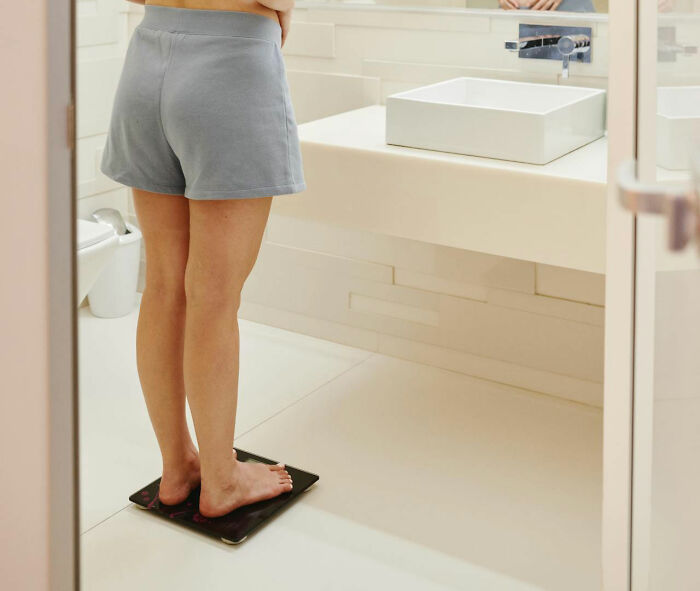
Image credits: loltoecrack
#3
CHAFINGIt's particularly cruel because it makes you even more likely to avoid walking or exercise thus ensuring you put on more weight.

Image credits: IcyCrust
The licensed therapist also tells Bored Panda that the body positivity movement is about fighting systems of oppression. "To be effective in supporting people to heal from mental health struggles, we have to look at how systems of oppression impact people each and every day, the intergenerational transmission of trauma from those systems, and how trauma responses are now impacting the day-to-day."
Herstich emphasizes that the body positivity movement is about so much more than just loving your body. "It's a movement aimed at liberating all bodies while acknowledging that until all bodies are free from stigma and oppression, we are not truly body positive," the licensed therapist explains.
#4
How much you dread people taking photos of you because it always ruins your day to see yourself in a photo.
Image credits: Schmomas
#5
From a woman’s perspective, that men don’t think you are allowed to say no to them or reject them. There are a lot of men out there who think because you’re fat, you’re probably lonely and you should be happy with any male attention you get.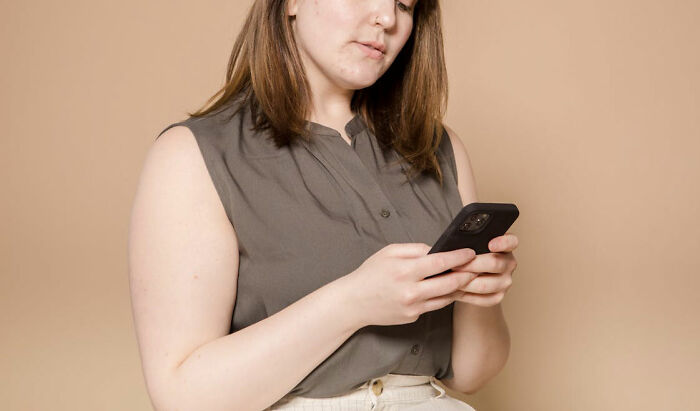
Image credits: cryrabanks
#6
It is really easy to gain weight over time. You get a sedentary job and you snack occasionally, and in the evening you watch TV or read a book instead of going out. So you weigh three pounds more than you did at this time last year. No big deal, right?Now, multiply that by fifteen years or so. All of a sudden, it is your fortieth birthday, and you somehow weigh fifty pounds more than you did in college. It isn't because you always eat two boxes of oreos a night -- you just gained a little, year after year.
Also? It is a lot harder to lose weight when you are heavy. When I was 25 and thought I had gained a few pounds, I'd start jogging. Pretty soon, I'd be able to run two or three miles at a shot, and hey! Problem solved! Now? I'm older and heavier and that means I'm a lot more prone to injury. So I try to work out, and my knees start hurting (again) or I aggravate an old foot injury, and it gets frustrating. There are workarounds, of course. I can swim, and I can lift weights. But it is all harder than it was when I was young. .
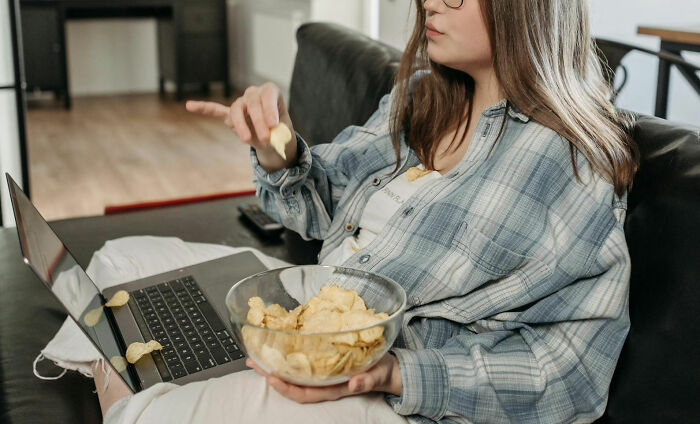
Image credits: Prodigal_Lemon
As with any other movement that gains traction, some misconceptions exist about body positivity. One of them is that the movement promotes unhealthy lifestyles and eating disorders. Herstich says that it's actually quite the opposite.
"It supports people in acknowledging when their fear of fat originated, how that has made their body feel unsafe to live in, how they have internalized that as truth, and to build a new relationship with their bodies – coming home to themselves and treating their body in ways that are health-promoting and respectful."
#7
Finding clothes that fit, worrying if furniture would support you.
Image credits: beef_burrito_supreme
#8
Just how much internalized shame we carry. If you’ve seen someone who was really skinny struggle with shame, with thinking that they are too fat, and feeling guilty about how they look….that same shame lives inside so many of us.And a lot of us are honestly doing the best we can with subpar health care and normalized stigma.

Image credits: Maximum_Enthusiasm46
#9
I have lost 180lbs after having a gastric bypass 22 months ago.While the physical changes are awesome, the best thing is that my mind can focus on things other than my weight. I hadn't realised that the thoughts about my weight and food were a constant background chatter: "can I park close enough to the supermarket door that I can get inside without stopping?" Or "will the café have some of the chairs left that I can fit in?" And so on - *all of the time*. So much of that has dropped away, yet I wasn't fully aware that it was clogging my thoughts until it was gone - like only noticing that your radiators were making a noise once the boiler goes off at night and they fall silent. I am now at peace.

Image credits: Alternative_Cake_739
"Body positivity challenges normative and harmful beliefs in a hierarchy of bodies based on size, race, ability, identity, sexual orientation, or socioeconomic status," she adds. "Mainstream body positivity also supports people to recognize body diversity, exit harmful dieting cycles, and challenge what is healthy vs. unhealthy."
#10
Unless you're a medical professional who specialized in weight-loss, there's probably nothing you can say to them about their weight that they haven't already heard or are not already well-aware of.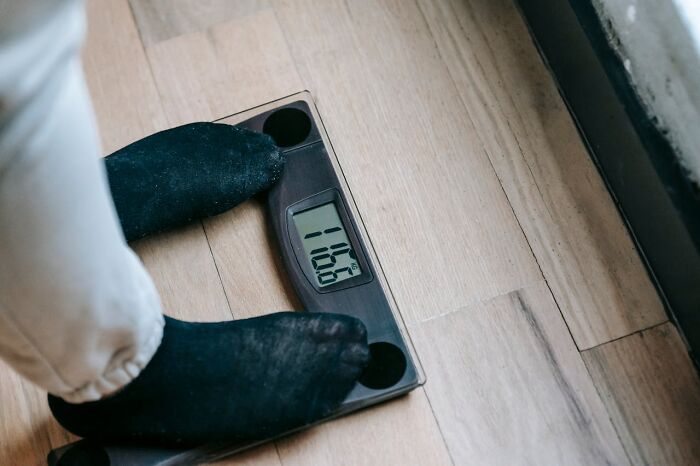
Image credits: limbodog
#11
How you become expected to be the garbage disposal. "Oh, hey, there's leftover cake from (coworker's) birthday thing. We'll take it to (fat coworker), they'll eat it."Or the last donut or whatever. And then they get all upset when we say no and are like "it'll go to waste!" because I'm already fat so what does it matter, right?

Image credits: deagh
#12
The constant need to physically adjust yourself.I wear clothes that fit but I'm still constantly adjusting my clothes, my body position, etc. just to be comfortable and for my clothes to have a chance of hiding some of what's going on here. My thin friends almost never adjust their clothes and such.

Image credits: Complete-Scar-2077
Herstich tells us that the point of the body positivity movement is that people can feel safe and free in their bodies. "A culture that is inclusive, accepting and uplifting all bodies, will ultimately be supportive of wellbeing, [physical] and mental health," she explains.
"If that existed, diet culture would not. As a society, we need to continue to do the work of dismantling systems of oppression that impact and harm bodies outside of the thin white ideal."
#13
That if fatshaming worked, there wouldn't be fat people.Also that, yes, I do exercise 3-5 days a week and I do diet, and I don't just stuff my mouth with junk food day in and day out.

Image credits: spacemermaid3825
#14
As someone who was once obese, and now is just a bit over weightHoly F**K is it hard to keep it off. I still want to eat like I did when I was heavier.
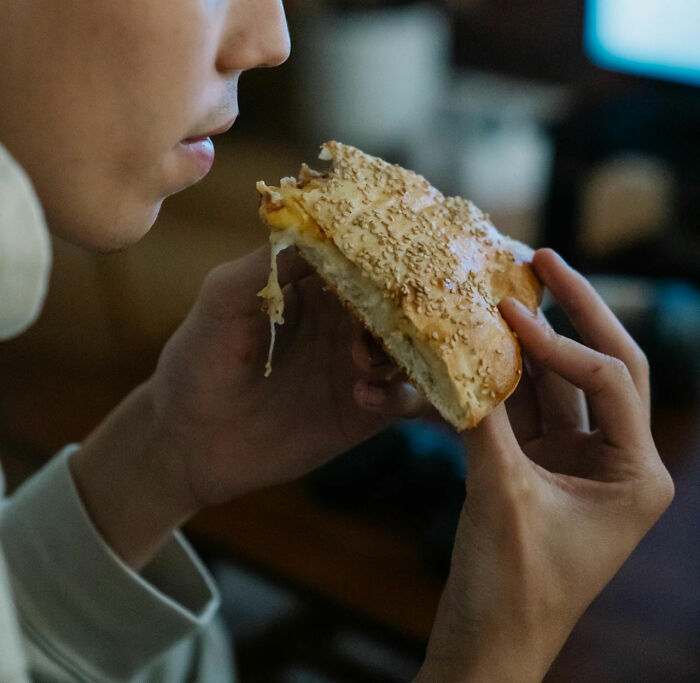
Image credits: Anko_Dango
#15
I'm not obese but my sturdy friend says you always get this look when boarding a plane in economy where everyone hopes to god you're not in the seat next to them.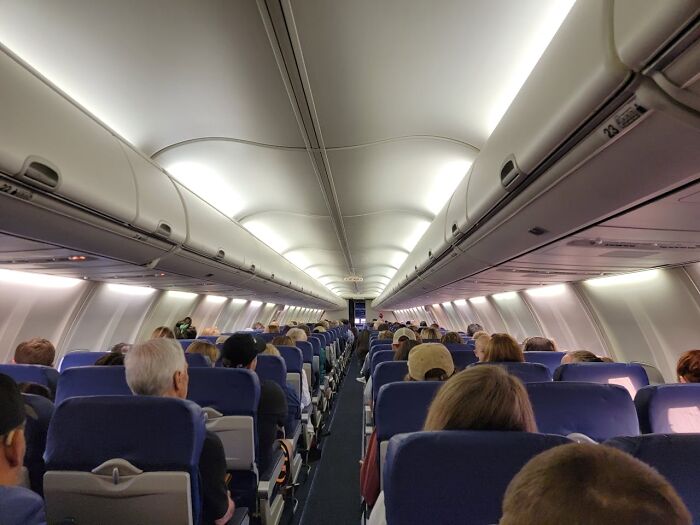
Image credits: azninvasion2000
#16
I have limited places I can comfortably go due to the width of my a*s.I would love to go to a concert, or a movie, or on a plane, but it literally *hurts* to wedge my butt into the seat and I lose circulation in my legs if I can't move. I would love to go on rollercoasters or ferris wheels. I don't lack *desire*.
On top of that issue, using public toilets is *extremely* uncomfortable. I prefer to use the handicapped stall, and I *despise* the times I have had to use the regular size stall. Multiply that discomfort by 1000 if I'm on my period.
I feel like I always have to be tidy, smell good, and be super put-together to "make up" for people being inconvenienced by my presence.

Image credits: lyan-cat
#17
The guilt that comes when you’re seen eating anything at all.The “aww good for you!” if you’re seen eating a salad because the only possible reason a fat dude would eat a salad is to lose weight.
The existential dread every time you get a random pain in your chest or stitch in your side and think that this could finally be the heart attack.
The fact that you can go days or weeks at a time without really feeling bad about being fat but then all of a sudden one day it’s all you can notice about yourself.
Summer f*****g sucks. It’s too hot anyway, but being fat makes it hotter. And then you get worried that — despite having perfectly good if not over the top hygiene — maybe you’re starting to have “fat guy smell.”.
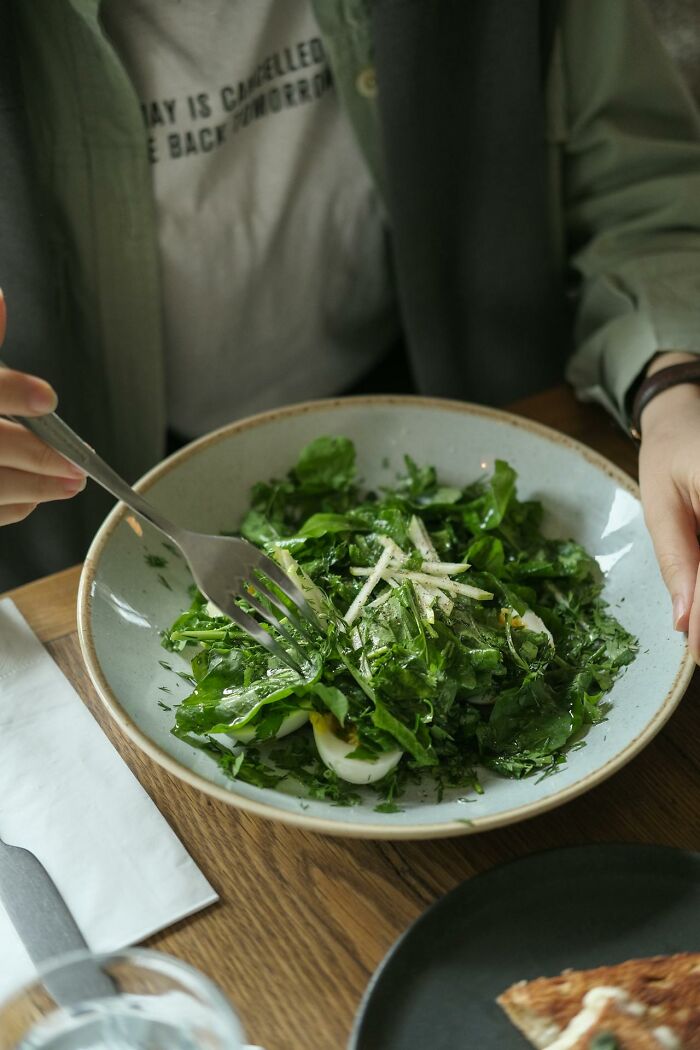
Image credits: warrenjt
#18
When you’re fat but people like you, they will divorce your fatness from your character, but they’ll still talk negatively about fat people in front of you (simply because of their fatness) and you just sort of sit there like ?.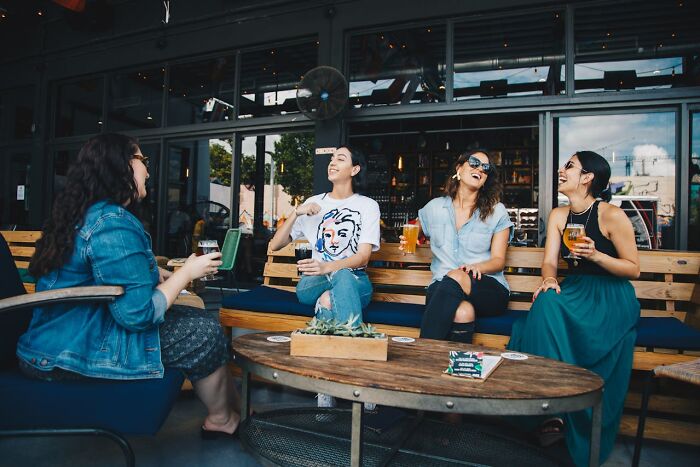
Image credits: moonshad0w
#19
Here’s a positive in a thread full of negatives: I am wayyyy stronger than you think I am. Every moderately active obese person is stronger than anyone else doing the same level of activity, especially in the legs department. As fat as I am, my calf muscles are f*****g shredded.#20
Having to face the dilemma of choosing the perfect outfit every time you leave the house.A lot of obese people are incredibly self-conscious about their bodies, and will wear more/bigger clothes to feel more comfortable.
This makes you overanalyse the weather and stuff. Layering wrong is gonna make you too hot or too cold later on.

Image credits: SlapDatBassBro
#21
Just because we are obese doesn’t mean we can’t do physical activity. People don’t have to act surprised that we can indeed participate. I’ve heard this from people when I’ve gone to play soccer or any other sport. I am not the fittest guy playing, but it doesn’t mean that I’m going to die if I run around for a bit.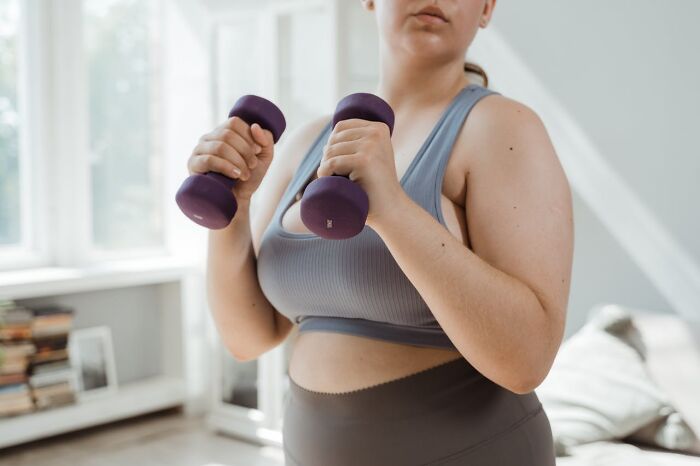
Image credits: rehpot821
#22
That for some of us, losing weight is extremely difficult. Some medications can make you excessively hungry. Also those of us with long-term depression and anxiety issues often use food as a source of comfort. We *know* it's a poor choice, but in the moment, we don't think of anything but eating something tasty.Having people patronise us actually makes things worse, not better.
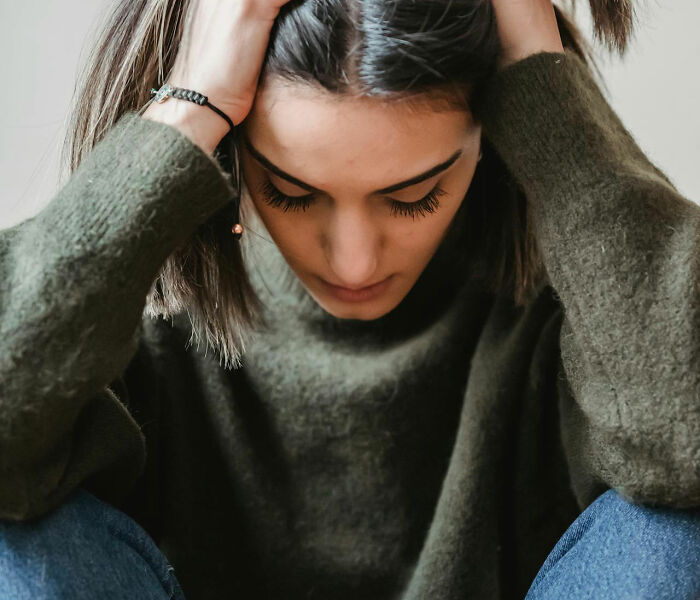
Image credits: Dels79
#23
How painful being alive is.i'm not obese any more. Last year I was 375ish lbs, I was obese then.
Living is painful. People would tell me to exercise, that i'd get runner;s high, that it's easy. No. life is pain at nearly 400lbs. everything is so hard.
I now weigh about 210lbs. life isn't pain any more, i still hate exercise, but when I exercise I get tired or exhausted depending on the intensity, i don't get 'i want to kill myself' borderline injured.
show your obese friends some kindness.
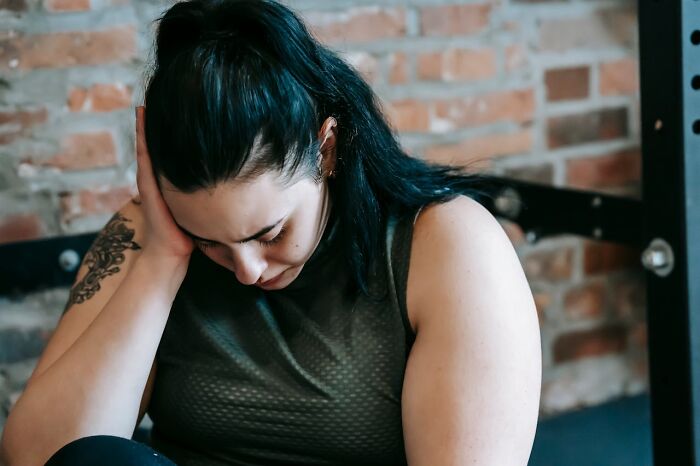
Image credits: RaggamuffinTW8
#24
How it feels when the wii fit lady says, "That's obese" in her cheery a*s voice.
Image credits: outtastudy
#25
I have been heavy and light and back again several times (which takes a massive toll on the body on its own, but there you go). I have always mentally been obese, in terms of the space I think I take up in the world. Even at my lightest, which was about ten pounds north of my "ideal weight", I would still check every chair to make sure it's not rickety, still turn sideways to get between things when I didn't need to, still eyeball things like amusement park rides and theater seats because I thought I wouldn't fit comfortably. Obesity has a huge impact on the body, but also on the mind. It's why they say things to men like, "Find a fat girl to have sex with, she'll be grateful."It's also a little bit of armor though. If anyone is going to make fun of me, it's going to be for one thing. Being fat. No other insecurities ever get picked on. I'm seen as only being one thing, so I've gotten pretty okay with people pointing it out.

Image credits: Solid_Parsley_
#26
How people treat you. With active disdain. People glare at you, they scoff at you, they make faces of disgust when seeing you. Random-a*s people feel free to honk at you and yell s**t from their car, when you walk alongside the road.The hatred is honestly intense.
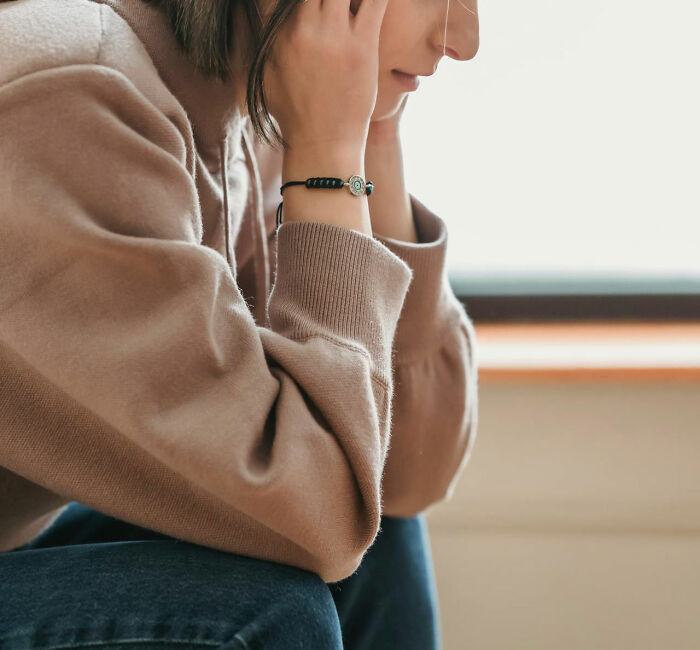
Image credits: Lisija123
#27
As a former obese person, having to pull down your tshirt/shirt to prevent it from lifting up. My non-obese self has well fitting clothes and I still subconsciously pull my tshirt down.That and the glaring looks that you get when you stand in food lines at buffets or at airports. .

Image credits: amadnomad
#28
I used to be obese. The worst thing for me was how people looked at me. I’d try to make friends and the first thing they would do is look at me in disgust.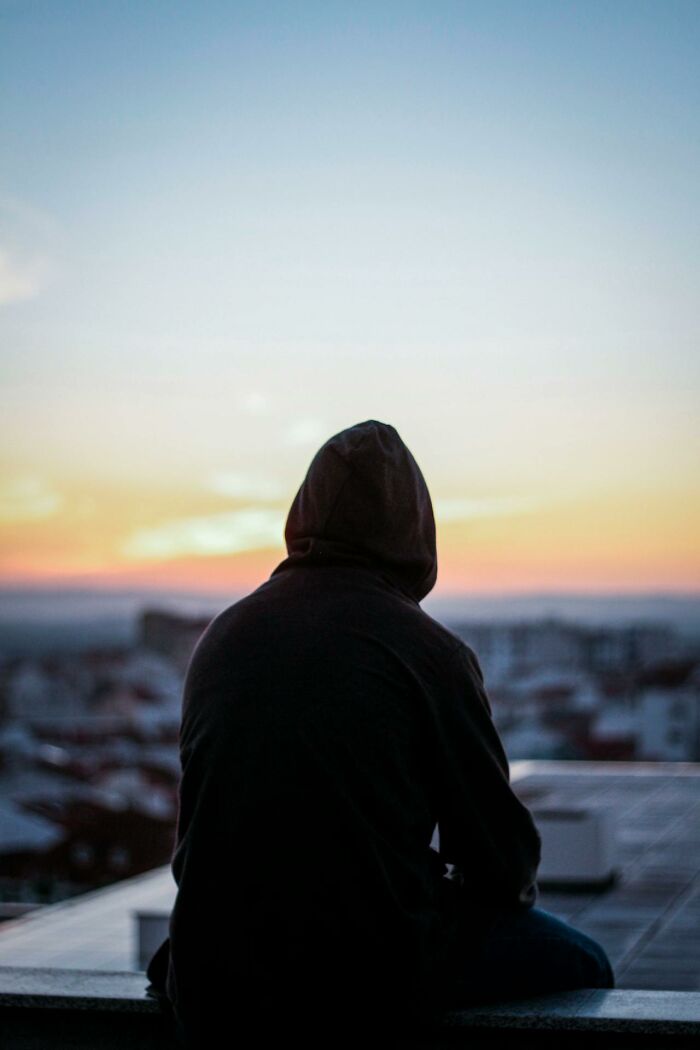
Image credits: DeadStormPirate
#29
I ask thin people if they eat until they are satisfied. Most answer honestly "yes". I then ask if they have eaten but don't feel satisfied yet, do they eat more. Most answer "yes". Fat people do the same, but the amounts are different. "Just eat less" is easy to say when eating less satisfies you.#30
I dropped a lot of weight before and family or friend reunions go one of three ways: 1) the person tells you look great and they ask what you did, 2) they’ll tell you look so much better and healthier because they were concerned about you. However, the surprising one is 3) they’ll insult or complain about the heavier you like it was a completely different person.And #3 isn’t coming from people you normally have contentious relationships with or people you have tough love/hard joking relationships with. You expect jokes from those people. It’s surprisingly comes from the people you were very close to, sometimes ones you never hear speak badly of anyone. The hardest I’ve heard was, “I’m surprised we were even friends.” On a similar note, a friend found out I was much heavier before I met her and she said, “We wouldn’t have even been friends!”
It’s those comments that stick with you. Even more than the insults from when you were heavier. It’s harder because it validates the insecurities you had about your weight, how people perceive you, and how conditional some of your seemingly closest relationships actually are. Thanks to depression and quarantine, I’ve put some of that weight back on and those remarks still come to mind when I’m feeling insecure.

Image credits: alanamablamaspama
#31
How inhuman you feel being obese and how painfully aware of that you are when out in public by the up and down glances from people. The coldness, shortness, and avoidance. Also, unsolicited dieting advice/assumptions after mentioning that you're making lifestyle changes. I've researched fitness/health and read tons on obesity/metabolic dysfunction. Watched all the TEDTalks and youtube gurus. Went vegan, keto, did juicing, and fasting. Got blood tests and seen doctors/specialists/dieticians. I know a lot, I'm always learning. I've lost over a hundred pounds since December. Yet people will chime in. Just cut out soda! Just eat less and move more (duh). Try keto, try bariatric procedures, etc. I never drank soda, always been a hydrohomie, also seltzer and herbal tea lover. So I really hate when people assume I slurp down a pallet of 2L sodas daily. I always preferred to eat my calories, not drink them. I do eat less now and move more; my sedentary obesity stemmed from unhealed trauma throughout childhood. Bad coping habit of binge eating. Severe agoraphobia, have spent years being housebound. Former suicide attempts and a toxic relationship. I'm well aware of what my mentality was to be so unhealthy by being so fat. I needed to face that first, and I finally have. I don't expect people to know or care to know any of that. I hated myself far more than anyone ever could anyway.#32
How much advice people try to give you. Why eating an apple is so much healthier than eating a cookie. Or why it's so dangerous to be overweight. I know you are worried and I appreciate it, and I really do know these things. I'm really trying to keep up with you, but I can't run a mile every day. I can walk at my own pace and cut out the things that I can, but it's not working for me the way that it used to.
Image credits: My-Life-Now
#33
Being invisible.Also, that you are assumed guilty for anything (not just related to food) just cuz you're overweight. Fat people, especially women, have a far higher guilty verdict in all US courts.
Yes, I get that it's ironic that one can be invisible until someone needs to attribute blame.
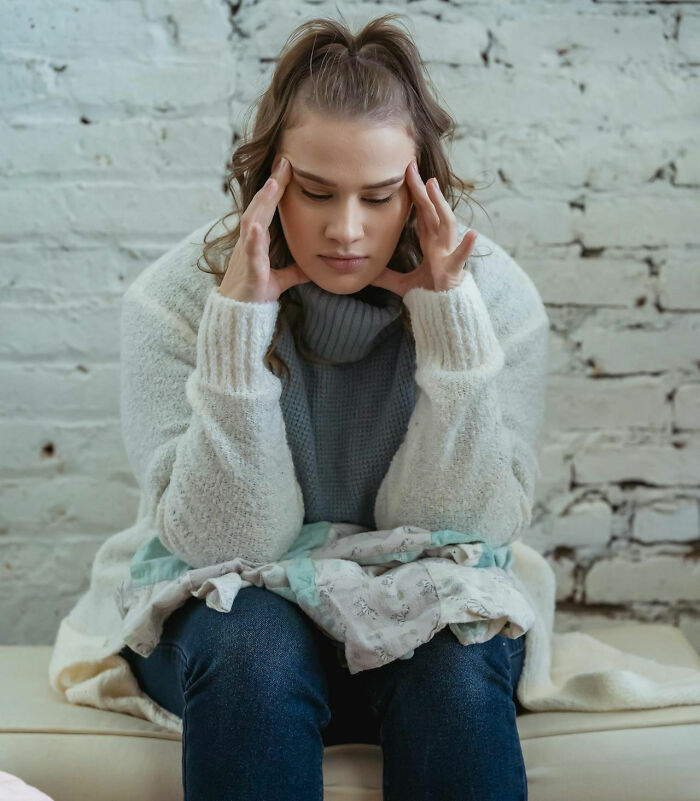
Image credits: bugwrench
#34
I am in pretty good shape but i used to be obese. I was almost 300 pounds at one point.One can't expect others to embrace obese persons with the same level of attraction or positive affect as typical persons. However, one thing that everyone should understand is that people usually become overweight because they have an emotional relationship to food.
Their dietary habits consist of irregular eating and eating as a form of meditation. It feels incredibly calming and enthralling at times to gorge yourself on food. Every thrust of your tongue and crunch of your teeth becomes enjoyable and almost addictive. Think of a bodybuilder honing and focusing on the pump their biceps get or the moment when they're in the middle of contracting a huge weight and feeling the stretch and bodily stress of that contraction. Every part of that lifestyle deeply enmeshed within your psyche and the best part of it is that it's a lot easier than everything else that life throws at you. .
#35
The fact that sometimes we like to treat ourselves when eating out, the amount of times I've gotten looks and comments when getting some nice food. Or the issues that can happen with the body after losing significant weight, for example loose skin. Love having to deal with using strong antimicrobial cleaners every day or risk skin infections.from Bored Panda https://ift.tt/VYfWpeK




No comments: